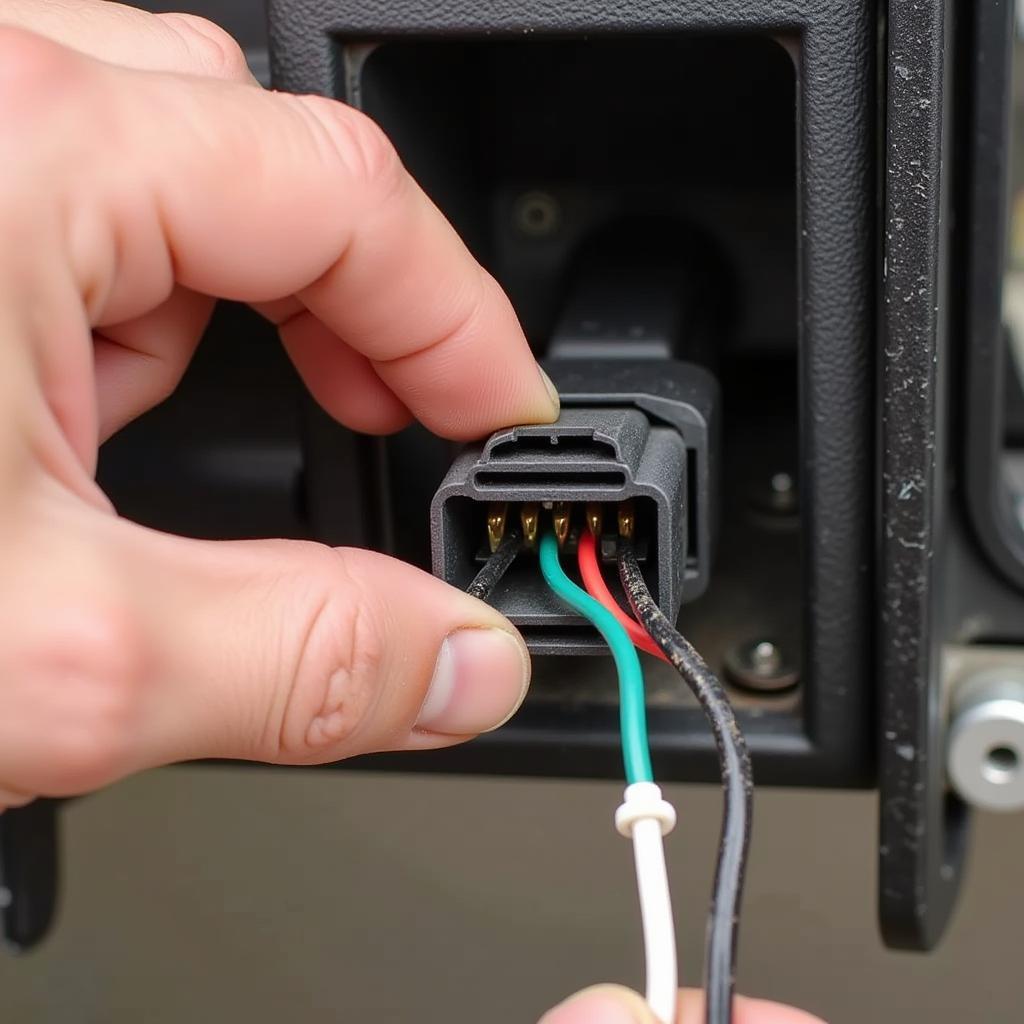“Hey Siri, play some driving tunes!” – a phrase we’d all love to utter in our cars, regardless of whether they rolled off the production line last year or a decade ago. While built-in Bluetooth is a given in newer vehicles, many car owners still grapple with outdated audio systems. This is where Bluetooth adapters for car radios step into the spotlight. Providing a bridge between modern technology and your trusty old stereo, these handy devices open a world of wireless audio streaming, hands-free calling, and a whole lot more. Let’s dive into common issues, solutions, and everything you need to know about choosing the perfect Bluetooth adapter for your car radio.
Understanding Your Car Radio and Common Bluetooth Adapter Issues
Before we jump into the specifics, it’s helpful to understand how these adapters interact with your car’s audio system. Essentially, they act as an intermediary, receiving Bluetooth signals from your phone and transmitting them through your car speakers via an auxiliary input or FM radio waves.
However, like any technology, Bluetooth adapters aren’t immune to the occasional hiccup. Here are some common issues users encounter:
Common Bluetooth Adapter Problems:
- Intermittent Connection Drops: Just when your favorite song hits its peak, the music cuts out! This frustrating issue can often be traced back to signal interference or a weak Bluetooth connection.
- Static or Poor Sound Quality: A constant hiss or muffled audio can ruin your listening experience. This problem can stem from improper grounding, low-quality adapters, or incorrect audio settings.
- Compatibility Issues: Not all Bluetooth adapters are created equal, and some may not play well with specific car stereo models. Always check compatibility before you buy.
- Pairing Difficulties: While pairing should be a breeze, some adapters might require specific button combinations or timings, leading to frustration.
Troubleshooting Bluetooth Adapter Issues in Your Car
Now that we know the potential culprits let’s roll up our sleeves and explore some troubleshooting steps:
1. Check Your Connections and Power Source:
This might seem obvious, but loose connections are often the root cause of many audio woes. Ensure the adapter is securely plugged into both your car’s auxiliary port and a power source. If you’re using an FM transmitter-style adapter, make sure it’s tuned to a clear frequency.
2. Minimize Interference:
Bluetooth signals can be affected by other electronic devices. Try turning off Wi-Fi on your phone and keep it away from devices like laptops or GPS units.
3. Optimize Audio Settings:
Sometimes, the solution is as simple as adjusting your audio settings. Check both your car stereo and phone’s equalizer settings. You might need to boost the treble or bass to achieve a balanced sound.
4. Update or Reinstall Drivers:
Outdated or corrupted drivers can also lead to connectivity problems. Consider checking for firmware updates for your adapter or reinstalling the Bluetooth drivers on your phone.
5. Seek Professional Help:
If you’ve exhausted all troubleshooting options, it might be time to call in the cavalry. A qualified car audio technician can help diagnose complex issues, ensuring your audio system is in top shape.
Choosing the Right Bluetooth Adapter for Your Car: A Buyer’s Guide
Navigating the world of Bluetooth adapters can feel like entering a maze. Here’s a roadmap to help you choose the perfect one:
1. Auxiliary Input vs. FM Transmitter:
- Auxiliary Input Adapters: These plug directly into your car’s AUX port, offering superior sound quality.
- FM Transmitter Adapters: These transmit audio signals over an FM frequency. While convenient for cars without AUX ports, they may be prone to interference.
2. Sound Quality and Features:
Look for adapters that support aptX or aptX HD for a higher-quality listening experience. Some adapters offer additional features like noise cancellation for calls, multiple device pairing, and voice assistant integration.
3. Ease of Use:
Opt for adapters with intuitive controls and a user-friendly interface. Consider factors like button placement and display readability, especially for hands-free calling.
4. Price and Brand Reputation:
While it’s tempting to go for the cheapest option, investing in a reputable brand often means better quality and longevity.
FAQs: Bluetooth Adapters for Car Radios
Q: Can I use any Bluetooth adapter with my car radio?
A: Not necessarily. Compatibility varies, so check your car stereo’s specifications and user manual for compatibility information.
Q: Will a Bluetooth adapter drain my car battery?
A: Most adapters have minimal power consumption. However, it’s good practice to unplug it when not in use, especially if your car sits idle for extended periods.
Q: Can I use my car’s steering wheel controls with a Bluetooth adapter?
A: Some advanced adapters offer steering wheel control integration, but this varies depending on the model and your car’s compatibility.
Q: My Bluetooth adapter is making a high-pitched noise. What should I do?
A: This could indicate a grounding issue. Consult your car’s manual or a professional for guidance on proper grounding techniques.
Get Connected with Cardiagtech
Upgrading your car’s audio system doesn’t have to involve a complete overhaul. Bluetooth adapters offer a simple, cost-effective way to enjoy the benefits of modern connectivity. For all your automotive diagnostic and repair needs, remember Cardiagtech offers cutting-edge solutions to keep you on the road and connected. Contact us today for expert advice and top-quality products.


